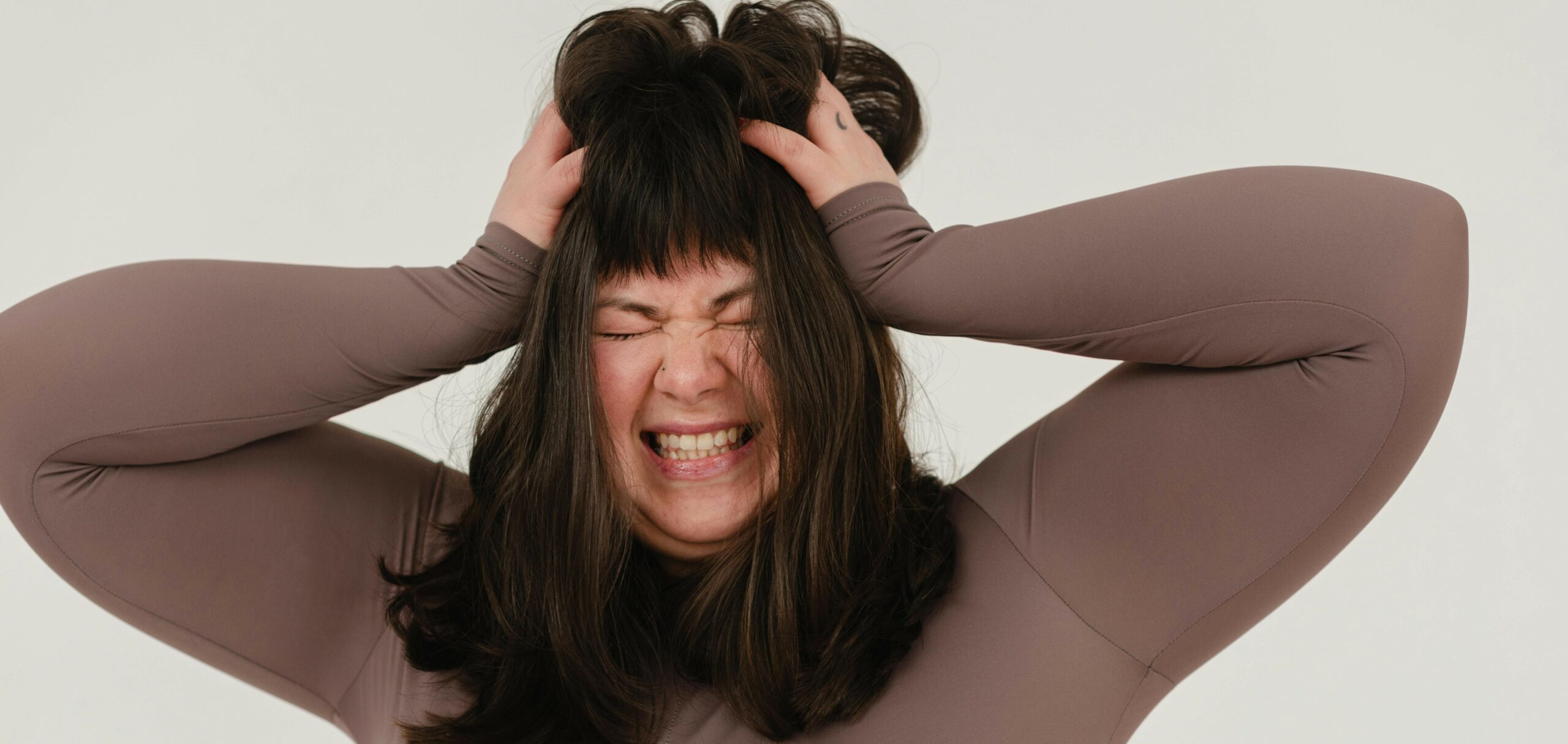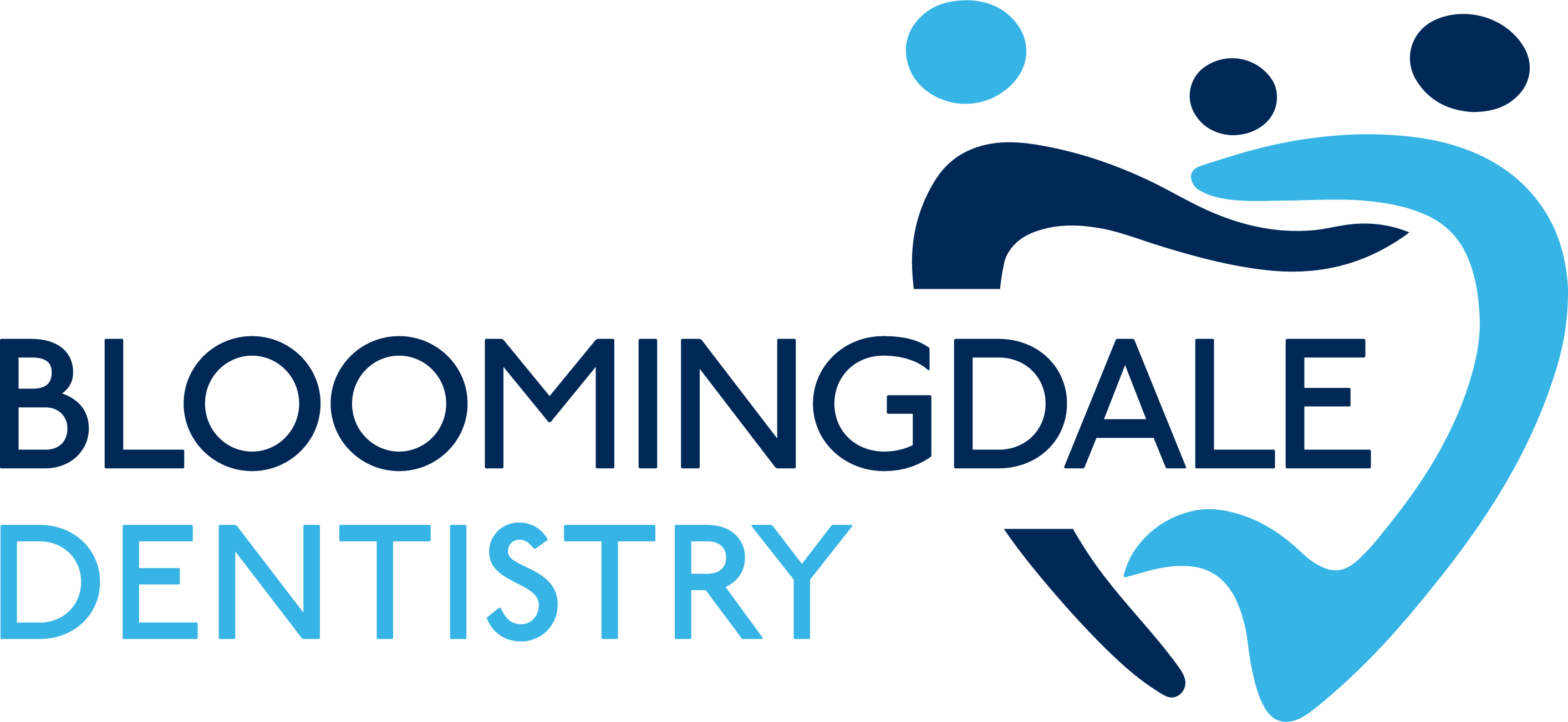
01 Jul Stop Grinding Your Teeth: Here’s Why
Tooth grinding causes major dental damage, but many people who sleep alone are completely unaware that they grind their teeth at night! So, what should you do if you think you might grind your teeth? We’ll go over some of the common symptoms of tooth grinding, and how you can best reverse this bad habit and protect your teeth from damage.
What are the effects of grinding your teeth?
Teeth grinding is not just a bad habit. It is a medical condition – bruxism.
Most people who have sleep bruxism don’t grind their teeth the entire night. Instead, they experience 1-2 second episodes of intense clenching and grinding. The frequency of these episodes is usually very inconsistent and unpredictable, and you may grind your teeth many times in one night, or not grind for many nights in a row. During the day, most tooth grinding is unintentional: individuals don’t realize what they’re doing and can’t stop easily. However, during the night, people are far more likely to grind their teeth and never realize they do so, because, well, they are asleep.
When it happens during sleep
During sleep, some amount of mouth and jaw movement is normal and healthy: almost 60% of people sometimes make little chewing motions called RMMAs (rhythmic masticatory muscle activities). In people with sleep bruxism, however, these episodes have extreme force and happen much more often.
Most sleep bruxism occurs in the early sleep stages, usually around stage 1 or 2 of non-REM sleep time, but most people who deal with this issue notice the pain as soon as they wake up. Because bruxism causes you to clench your jaw and grind your teeth, it causes strong tension around your face and jaw, and this often presents itself as a severe headache.
What’s far worse, though, is the damage bruxism can cause to your teeth. When you grind your teeth at night, for the few seconds that the episode lasts, your teeth experience 250 pounds of pressure! Enamel is the strongest substance in the human body, but it has its limits. When consistently put under extreme pressure like that, your teeth can split open, or form micro-fissures. Dental work, like crowns or fillings, can be damaged from the constant wear and tear of bruxism.
Symptoms of bruxism
How do you know if you brux your teeth? Sometimes a family member will observe that you grind your teeth, but if you live alone, then here are some ways you can detect bruxism.
Marks on teeth
Putting such extreme pressure on teeth will eventually leave its mark, so one of the easiest ways to tell that you’ve been grinding your teeth is to observe teeth that are chipped or loose. Similarly, although teeth grinding may not fracture your teeth, often enamel wears down over time, so flattened teeth edges or noticeable little groves in the tooth surface can also be a sign of bruxism. Because this wears down your enamel, you may also experience increased sensitivity, especially when chewing or eating something very hot or cold. When enamel is ground down, the sensitive inner tooth material is exposed to bacteria. If you’ve been experiencing a spike in cavities lately, it may be because your habits are stripping your teeth of their natural protective enamel.
Marks around mouth
Bruxism also leaves its mark on the muscles it utilizes: the neck, face, and especially jaw muscles. Does your jaw feel sore and tight? Is it painful to open or close it? The surrounding muscles are also affected, so if your neck is very tense, it may be because you’ve unconsciously been grinding your teeth. A sore jaw, caused by snoring in sleep because of a clenched jaw, also occurs as a result of bruxism.
External Pain
The most common symptom of habitual teeth grinding is a headache, particularly a dull pain starting in the temples. This tension can also present itself as a pain that feels like an earache, even though there’s nothing wrong with your ear. Check the inside of your mouth. See any damage on your cheeks, from accidentally chewing on them? This may indicate teeth grinding.
Restlessness
Lastly, check your sleep patterns. Because of the extreme pressure that tooth grinding suddenly places on our teeth, it’s common for patients to wake up in the middle of the night or be restless sleepers. If you are experiencing sleep disruptions, investigate the cause.
Why do we grind our teeth?
Are you stressed? One of the most normal involuntary reactions to being stressed or angry is grinding your teeth. The most prevalent cause of tooth grinding among Americans is stress. Even when there is no situation causing distress, for people who are consistently stressed out, it can become a habit to grind their teeth.
Bruxism is a common issue: in teenagers, approximately 15% grind their teeth. Thankfully, most of them grow out of the habit, as only 8% of middle-aged adults still grind their teeth.
What causes someone to grind their teeth? Here are some of the usual reasons:
Poor sleep
Dr. David Cook, a dentist from the Minneapolis area, writes that “there seems to be a high correlation between bruxism and sleep breathing problems at nighttime, causing poor sleep,” This can become a rather vicious cycle. Grinding your teeth disrupts your sleep, and the lower your sleep quality is, the more likely you are to grind your teeth.
Medication
Medication can also trigger bruxism and can be a side effect of the following medications: Prozac, Effexor, and Zoloft. Some antipsychotics can cause bruxism, because they inhibit neurotransmitters in your brain, like dopamine. If bruxism is the side effect of a medication you take, then generally symptoms will appear in the first month, sometimes after only a few doses. The good news about medication-induced bruxism is that if you stop taking the medicine, symptoms should cease within a month. If you suspect that teeth grinding might be caused by a certain medication you take, check with your doctor for other recommendations or adjusted dosage.
Bad Mental/Physical Health
Tooth grinding is statistically more common in people with anxiety and depression. Job-related anxiety in particular is a major risk factor, especially for people who are often worried or frustrated by their work environment. Some illnesses more commonly found among older individuals raise the risk of teeth grinding. Parkinson’s, Alzheimer’s, and dementia are all statistically more likely to increase bruxism, even though those older data groups as a whole exhibit less teeth grinding.
Alcohol, Nicotine, and Caffeine
One study found that there’s a significant correlation between bruxism and alcohol, and it’s common knowledge that alcohol can negatively impact sleep quality, which can worsen bruxism. There’s also a strong association in medical research between bruxism and smoking. Another dental study discovered that “heavy smokers were more than twice as likely to be bruxers compared with non-smokers.”
More concerning for most of us is the correlation between tooth grinding and coffee! Drinking caffeine, even a few hours before bedtime, drastically impacts the ease and quality of sleep. For those who drink lots of coffee or energy drinks, the risk for bruxism increases by 1.5.
Sleep Apnea
The most common sleep disorder is obstructive sleep apnea (OSA). Sleep apnea diminishes the amount of air someone gets while they sleep, which causes poorer sleep quality and more teeth grinding. It affects about 15-30% of adults. One sleep lab study used polysomnography to identify factors affecting bruxism. They found that the group with mild and moderate OSA (apnea-hypopnea index (AHI) <30) were more likely to grind their teeth. OSA impacts the respiratory, nervous, and cardiovascular systems, and causes can be either genetic or environmental. If you have sleep apnea, then you may also have bruxism.
How to stop grinding your teeth
Grinding your teeth is a genuinely dangerous habit, one that endangers your overall oral health and stops you from sleeping in peace. How can bruxism be treated?
First of all, we must understand tooth grinding treatment. According to the British Dental Journal, bruxism by itself doesn’t require treatment: treatment is only needed in situations where its symptoms become problematic. Yet the symptoms of bruxism almost always require treatment, and there are six methods of addressing this dental issue.
Oral appliances
The fastest way to stop grinding your teeth is to use a mouthguard or mandibular advancement device (MAD).
Common favorites because of their ease of use, mouthguards can be either purchased over the counter or created by a dental professional. Sleeping with the mouthguard will relieve tension on the jaw, keep your airways open, and prevent you from grinding your teeth. If you choose to wear a mouthguard to treat your tooth grinding, it’s important to remember you will also need to wear it during the day, as this will both prevent you from grinding your teeth and also serve as a concrete reminder to not clench your jaw.
Mandibular advancement devices (MADs), are often used to reduce chronic snoring, but are also used to help those with sleep apnea and can prevent tooth grinding. If your bruxism is a result of sleep apnea, this is likely your best treatment option, as it will address both interconnected issues with one treatment.
Medication
In some cases, medication may be an effective option to prevent bruxism. However, the effectiveness of medication in these instances is often a subject of dispute in the medical literature, and all medications currently on the market have potential side effects. This means that medication should be used only as a last resort if other solutions have been tried without producing results.
One medical solution stands out as surprising: Botox. Receiving Botox injections in the facial muscles can prevent patients from tensing their neck and jaw, which lessens teeth grinding. There is research to support repeated injections as an effective treatment method, although some dentists discourage this option because it requires repeated treatments. Despite the need for multiple treatments and the high cost, many patients do report relief, making this a viable option.
Muscle relaxation techniques
Given that bruxism is caused by the tightening of facial muscles, one of the easiest remedies is learning to manually relax these muscles. One study found that these muscle exercises, or professional massages can help to drastically reduce muscle tension and pain.
One exercise in particular follows these simple steps: While preventing your upper and lower teeth from touching, gently close your mouth, then press your tongue against the roof of your mouth, and hold this position for as long as you are able.
Stress management
If your teeth grinding is caused by stress, one of the easiest treatments is readily available! Simply practicing self-management and doing simple breathing exercises before bed can bring down your stress levels, therefore reducing your likelihood of tooth grinding,
Guided meditation, yoga before bed, and breathing exercises are all wonderful options for reducing stress levels. Using breathing exercises before bed can go a long way in helping you get deep and restful sleep every night. Some dentists note that stress management may not actually erase the habit of bruxism, merely halt you from grinding your teeth. Still, given that there are no side effects to this easy solution, it’s absolutely worth trying.
Professional therapy
There is a wide range of professionals who can offer solutions to those who struggle with teeth grinding. If your bruxism becomes very serious, look into meeting with a physical therapist, behavioral psychologist, or myofunctional therapist. Physical therapists will assist you in dealing with the pain that teeth-grinding causes, helping you to release the pressure trapped in your jaw and neck muscles. Myofunctional therapists will be able to train you in proper breathing techniques, clearing up your airways and teaching you the proper position and function of the mouth and facial muscles.
If the problem is a result of mental, rather than physical, stress, perhaps look into CBT; cognitive behavioral therapy. Managing stress issues is the best way to stop grinding your teeth, by being more mindful of your thought patterns and unconscious habits.
Sleep Hygiene
Lastly, improve your nightly sleep hygiene. Stress and sleep are inversely related, and without proper sleep, no stress management technique can be truly effective. Here are a few simple shifts you can make to your nightly routine, for better rest.
Stick to a consistent sleep schedule, wake up at the same time every morning, and try to go to bed around the same time every night.
90 minutes before bedtime, put away all electronic devices, including tablets, e-readers, and smartphones, and refrain from watching TV. This routine serves a dual purpose. First, it will reduce your blue light exposure, allowing your body to produce the melatonin it needs, signaling to your brain and body that it’s time to sleep. Secondly, by staying off all forms of digital media before bed, you’re less likely to see anything scary or exciting that might make your stress levels spike, and affect your sleep.
Lastly, avoid caffeine and alcohol for three hours before your scheduled bedtime.
Bruxism is a serious dental issue, but with a little research and effort, it is easy to treat. The best treatment for teeth grinding is always overseen by a dentist and based on the individual’s needs and preferences.
If you need a solution for teeth grinding, schedule a visit with Bloomingdale Dentistry today. We offer expert solutions to all your dental needs. Explore options to reduce pain and keep your teeth in optimal condition.

About Our Team
Our team at Bloomingdale Dentistry has over 40 years of experience in the field of dentistry. We have a reputation of excellence in patient treatment and care.
To learn more about our team, visit our team page.
